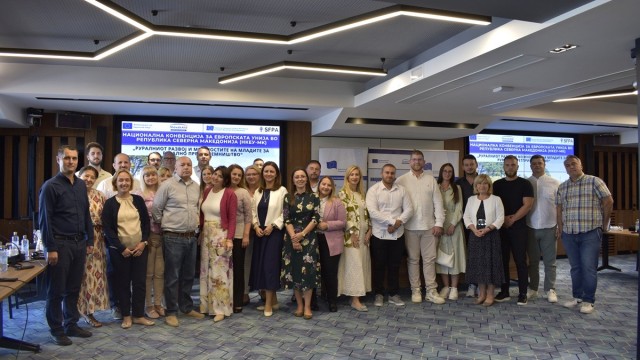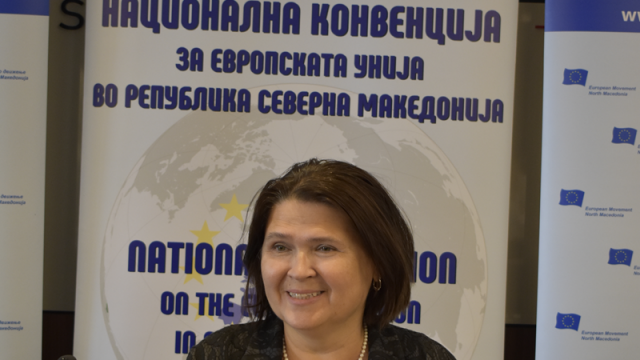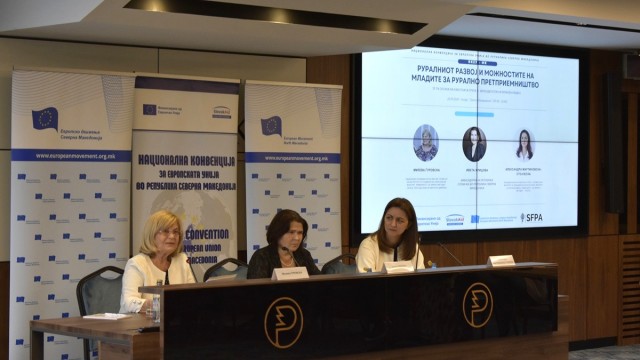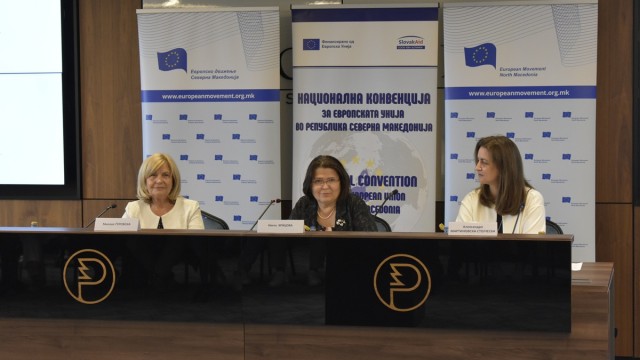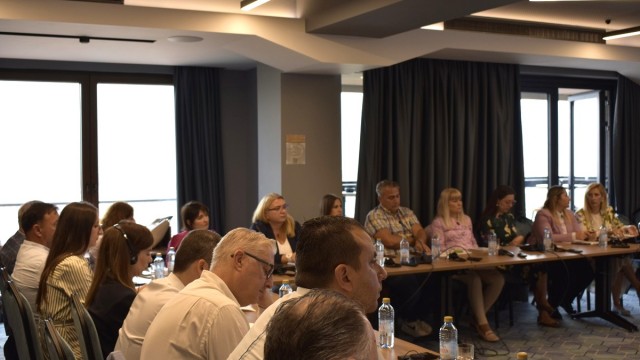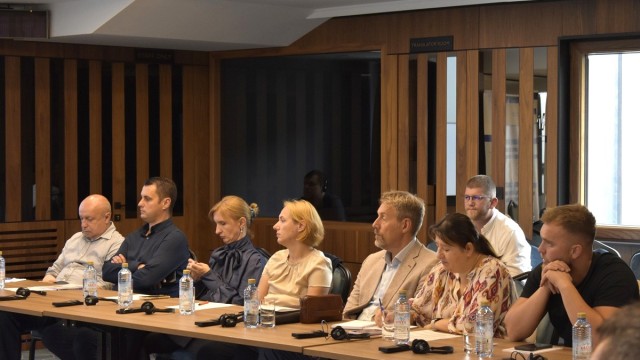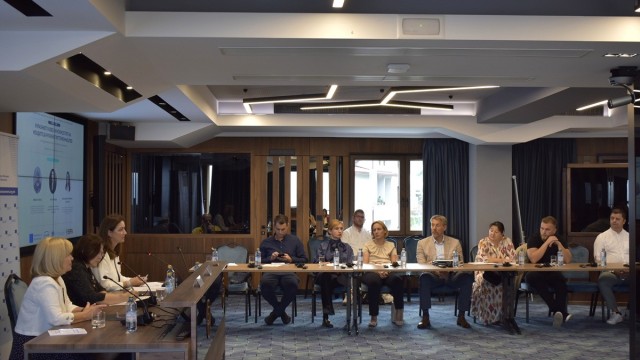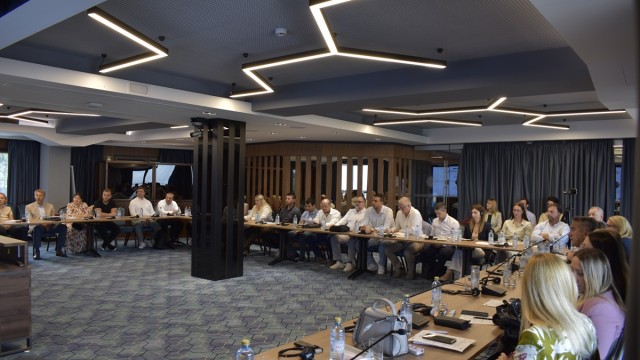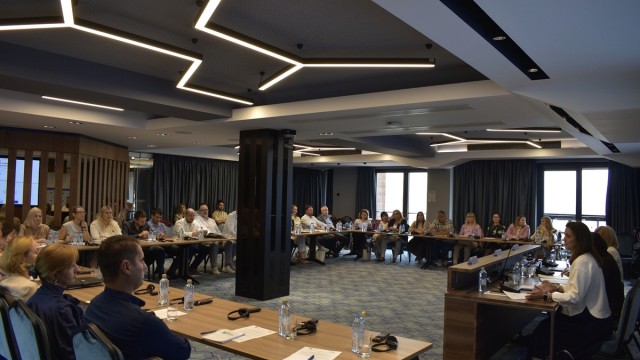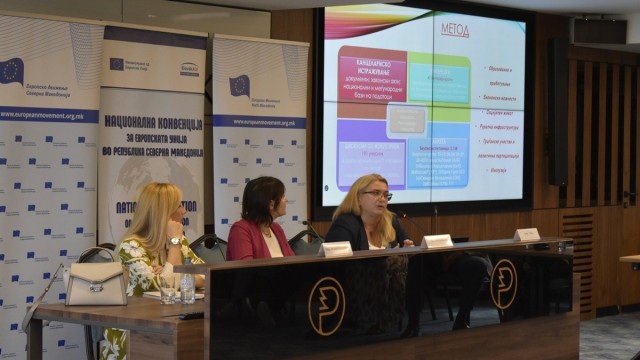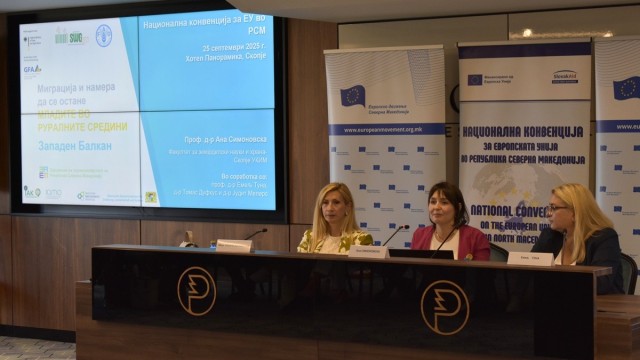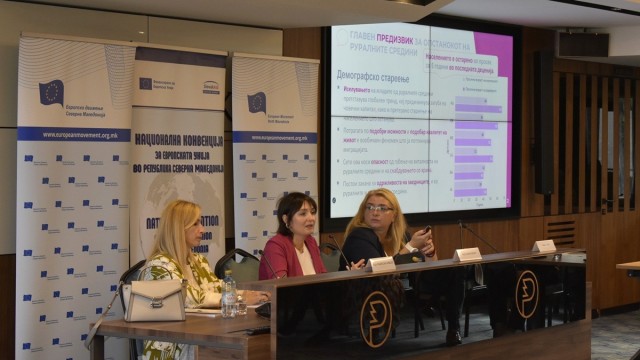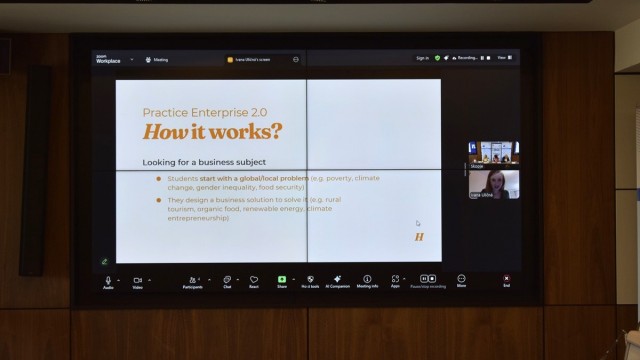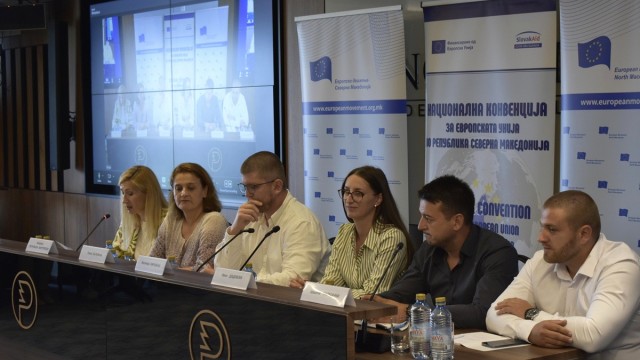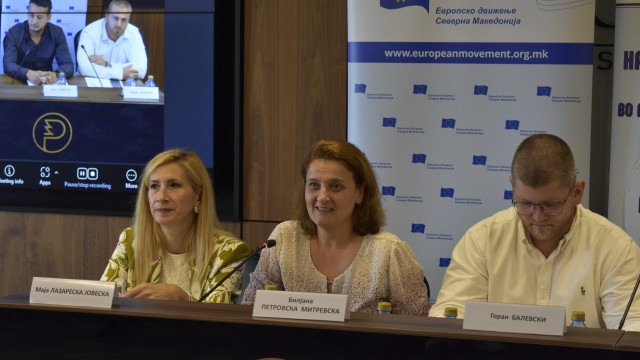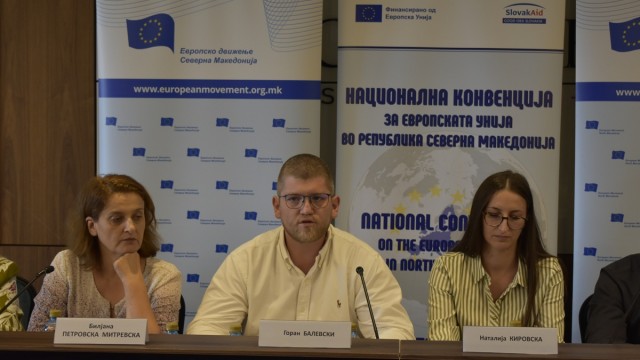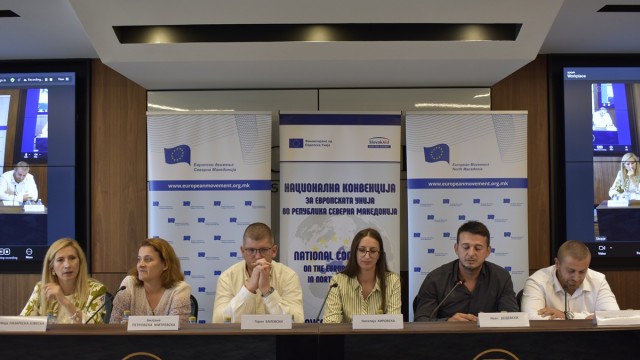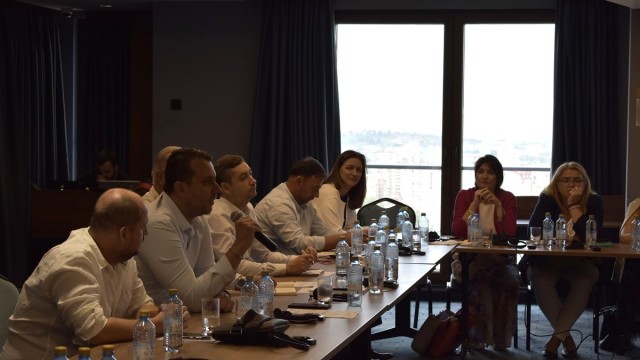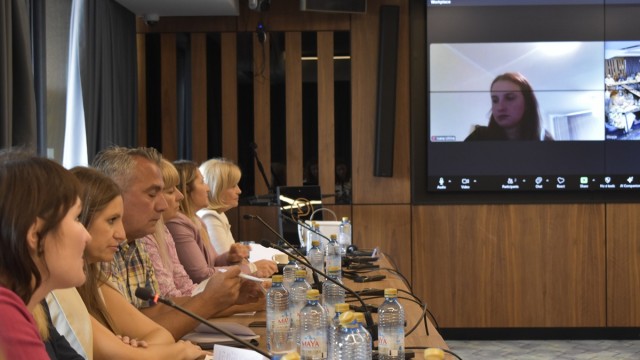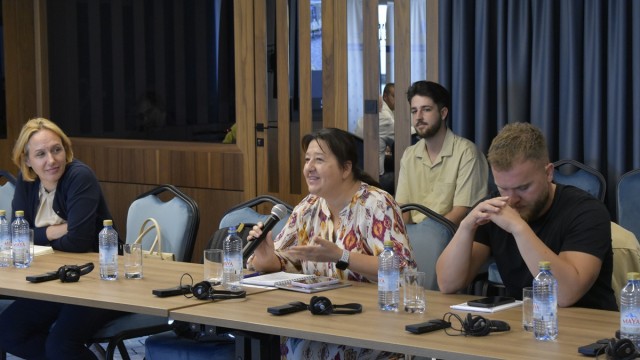On September 25, 2025, we held the 13th session of Working Group 1 – Agriculture and Rural Development (Chapter 11). The topic of the event was „Rural development and opportunities for youth in entrepreneurship”
The forum was attended by Macedonian and Slovak agricultural experts, as well as representatives of youth organizations, farmers’ associations, young farmers, the academic community, civil society, and other international partners, who, through inclusive dialogue, concluded that young people in rural areas still lack sufficient initiative to take on the role of a key driver of the future of agriculture and rural development by bringing in innovation, new energy, and fresh ideas. For most of them, as was said, life and work in rural areas do not represent an acceptable option, which carries the risk of further depopulation and a shrinking agricultural economy. This process seriously threatens this primary sector.
The event was opened by Prof. Mileva Gjurovska, National Coordinator of NKEU-MK, who emphasized that the National Convention for the EU has, for eight years now, represented a unique platform that neutralizes political polarization and enables professional, inclusive, and constructive dialogue. Only through this tool have 67 sessions been held with the participation of around 3,000 stakeholders a clear indicator of its value. “With this session, our goal is to encourage young people in agriculture and to provide a European approach to rural development, because the future of this area is the future of the country.”
Slovak Ambassador Iveta Hricova added that Slovakia is proud to support North Macedonia, not only financially but also through expertise via NKEU-MK, where a contribution is made to meeting European standards. Referring to youth, she stated that she believes they are the driving force especially in rural areas and that much more work must be done with them.
The dialogue focused on essential issues such as how to achieve better-quality education and training, and how to create suitable jobs.
Ana Simonovska from the Faculty of Agricultural Sciences and Food presented on Migration and the Intention of Youth to Stay in Rural Areas in the Western Balkans, sharing that demographic aging and youth emigration from rural areas are the greatest threats to their survival and to sustainable food supply. Young people most often leave in search of better educational and life opportunities, which leads to a loss of human capital and community vitality. The situation is similar throughout the region, concluding that “Emigration and aging threaten the future of rural areas, which is why the young people who choose to stay must be supported they are not only guardians of tradition, but drivers of the future.”
This was followed by Prof. Emelj Tuna, also from the Faculty of Agricultural Sciences and Food, who presented research data on Rural Development and Youth Opportunities for Entrepreneurship. The study shows that 8.2 million people, or 46% of the Western Balkans’ population, live in rural areas a figure that has been continuously declining over the past 15 years. Young people aged 15 to 29 number around 3.6 million, or 21% of the population, but their presence in rural areas is steadily decreasing.
In North Macedonia, youth make up 35.4% of the population, but rural youth face high unemployment, limited access to education and training, weak infrastructure, and massive migration. Prof. Tuna stressed that, if given adequate support, young people can be drivers of transformation through innovation, entrepreneurship, and the development of sustainable agri-food systems, contributing to revitalizing communities and creating a better quality of life.
The session also presented European practices for supporting and encouraging entrepreneurship, as well as examples of European programs and experiences specifically in rural entrepreneurship as a catalyst for retaining young people and involving them actively in rural development initiatives.
Slovak expert Ivana Ulična presented Slovak experiences on this topic, which are very similar to ours. According to her, rural areas risk losing their youth potential due to a lack of opportunities, leading to migration and depopulation. She also presented the concept Practice Enterprise 2.0, which offers a solution through a school-based model that allows young people to learn entrepreneurship based on responsibility, innovation, and sustainability. Young people are encouraged to develop businesses in areas such as sustainable agriculture, rural tourism, renewable energy, and digital services thereby creating local value. The role of women as drivers of rural development and innovation was particularly emphasized.
The second panel was dedicated to young people, where they identified key problems they face, such as lengthy procedures, insufficient and inadequate support.
Goran Balevski, founder of the organic cooperative B-Organic from Valandovo, said that current regulations make farmers feel like criminals who must be prevented from committing a crime, which is devastating.
Slow improvements in infrastructure, finances, and the lack of human resources are also major problems they face, seriously hindering business growth.
According to Jovanče Parmacki of Farma Parmacki, given the state of affairs in the country, which is not new, more investment is needed in production modernization. This would contribute to greater productivity while maintaining the high quality for which Macedonian organic products are known.
Ivan Dodevski, a professional beekeeper from the family business Dodevski Beekeeping, also believes that everyone should give more support to Macedonian farmers by buying organic Macedonian products.
Natalija Kirovska, a young honey producer from Kochani, also spoke about the potential for diversification, sharing that with her more active involvement in the family business, they began producing organic honey-based cosmetics.
At the end of the panels, there was a discussion among all participants, including representatives from the Ministry of Agriculture, Forestry and Water Economy, the Payment Agency, civil society, academia, and embassies, after which joint recommendations were proposed to create a better environment for youth entrepreneurship in rural areas and to strengthen the role of young people as leaders and innovators in their communities.






